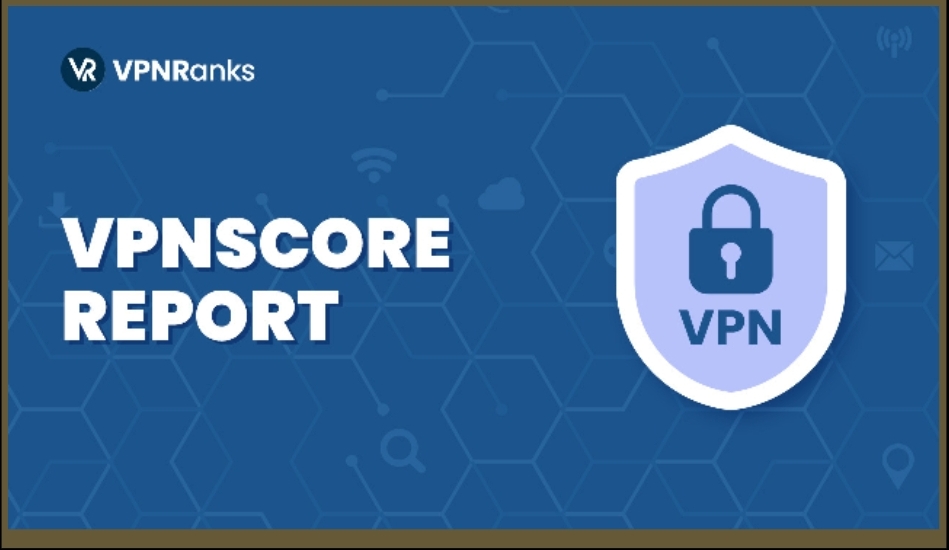Business
VPNRanks Report Uncovers User Discontent with Majority of VPN Services

A groundbreaking report by VPNRanks reveals significant user dissatisfaction with the majority of VPN services, showing that 89% of VPNs globally fail to meet user satisfaction standards. This revelation comes at a critical time when digital security is paramount, and the demand for reliable VPN services continues to rise.
The Importance of User Satisfaction in the VPN industry
According to industry statistics from Global Market Insights, the global VPN market size was valued at USD 45 billion in 2022 and is estimated to grow at a compound annual growth rate (CAGR) of around 20% from 2023 to 2032. Driven by the growing instances of cybercrimes and data thefts, coupled with the increasing proliferation of wireless devices and digital infrastructures across industries, user satisfaction remains a critical challenge for many providers. High user satisfaction is essential for customer retention, brand reputation, and long-term success in the competitive VPN market.
“User satisfaction is the cornerstone of success in the VPN industry. In a market flooded with options, it’s the real user experiences that set the leading providers apart. VPNScore helps users navigate this complex landscape by highlighting services that excel in meeting user expectations,” said Muhammad Saleem Ahrar, COO of webAffinity, the team behind VPNRanks.
VPNRanks is a leading VPN review platform that leverages sentiment analysis to provide comprehensive and unbiased reviews of VPN services. Its VPNScore is based on an AI-driven analysis of publicly available user reviews. The platform aims to simplify the process of identifying the best VPN provider tailored to each user’s unique needs.
VPNRanks Untangles Complex Findings on Key Features
VPNRanks evaluated four key features — ease of use, ease of setup, ability to meet user requirements, and quality of support — to identify the VPN companies that excel at customer satisfaction. To determine a final rank for each metric, VPNRanks combined a popularity score, which contributed 20 percent of the total, with a satisfaction score, which contributed 80 percent.
The study sifted through reviews on 93 paid VPN companies to determine the top providers. The VPNRanks report, issued in June 2024, provides rankings for each key feature and overall customer satisfaction. ExpressVPN achieved the top VPNScore — 6.29 out of 10 — for overall satisfaction globally. The next four top companies in that category, listed in descending order, are PureVPN, NordVPN, PrivateVPN, and Surfshark.
By assessing a variety of categories, the VPNRanks study reveals the challenges users face when trying to identify the best option to meet their needs. For example, NordVPN received a nearly perfect popularity score of 9.46 out of 10 but only a 4.7 satisfaction score. PrivateVPN received a satisfaction score of 6.69 out of 10, which rivaled ExpressVPN’s score in that category, but received a popularity score of only 1.23 out of 10.
The global rankings for ease of use illustrate how challenging identifying a quality provider can be. VeePN received a very high satisfaction score of 7.18 out of 10 while receiving a popularity score of less than 1 out of 10. The findings reveal a gap between user experience and market penetration that can effectively keep the best option hidden from the consumer.
The VPNRanks report gives users insight into satisfaction and popularity while providing a balanced assessment via its VPNScore. “Users should choose based on their priorities, whether it’s user satisfaction, market presence, or a balanced option,” the report states.
VPNRanks Shows Providers How to Become More Competitive
In addition to serving as a guide for consumers, VPNRanks also maps out a pathway for VPN providers seeking greater market share. The VPN providers that consistently appear in the top spots on the VPNRanks charts are those that have achieved a balance between popularity and user satisfaction. Those who neglect one or the other cannot keep pace with market leaders.
The report explains that those with high satisfaction scores but low popularity “might be well-loved by their users but need to increase their market visibility to compete more effectively.” Achieving overall success in the VPN market requires balancing user satisfaction with market presence, it advises.
Conclusion
As the need for VPN services continues to grow, businesses can expect to see more providers enter the market, making the task of identifying the best option more difficult. The insights VPNRanks provides stand as a timely beacon, guiding users to providers who can satisfy their needs and support their operations.
Business
Hustle Division Evolves into HD AI Lab Group: A New Powerhouse in AI-Driven Marketing

Los Angeles, CA — May 8th — Hustle Division, the award-winning agency behind Gold and Platinum campaigns for brands like PrettyLittleThing and Zootiez by Future — and legendary artists like 50 Cent, Snoop Dogg, Warren G, Normani, Saweetie, Tyga, YG, and will.i.am — is officially rebranding into HD AI Lab Group.
This major evolution is led by E.G., a proud Latino entrepreneur, who also owns Zooly.ai, a fast-growing AI company backed by major investors and already trusted by top brands across the NBA, NHL, and entertainment.
HD AI Lab Group brings together creative energy and real AI innovation to help brands, artists, and businesses grow in today’s world.
“This isn’t just a rebrand — it’s the evolution of everything I’ve built, now powered by real AI to shape the future of marketing,” said E.G., Founder & CEO of HD AI Lab Group.
Stay tuned and follow the journey on the newly revamped Instagram: @hustledivision
Media Contact:
info@hustledivision.com
-

 Tech4 years ago
Tech4 years agoEffuel Reviews (2021) – Effuel ECO OBD2 Saves Fuel, and Reduce Gas Cost? Effuel Customer Reviews
-

 Tech6 years ago
Tech6 years agoBosch Power Tools India Launches ‘Cordless Matlab Bosch’ Campaign to Demonstrate the Power of Cordless
-

 Lifestyle6 years ago
Lifestyle6 years agoCatholic Cases App brings Church’s Moral Teachings to Androids and iPhones
-

 Lifestyle4 years ago
Lifestyle4 years agoEast Side Hype x Billionaire Boys Club. Hottest New Streetwear Releases in Utah.
-

 Tech6 years ago
Tech6 years agoCloud Buyers & Investors to Profit in the Future
-

 Lifestyle5 years ago
Lifestyle5 years agoThe Midas of Cosmetic Dermatology: Dr. Simon Ourian
-

 Health6 years ago
Health6 years agoCBDistillery Review: Is it a scam?
-

 Entertainment6 years ago
Entertainment6 years agoAvengers Endgame now Available on 123Movies for Download & Streaming for Free
